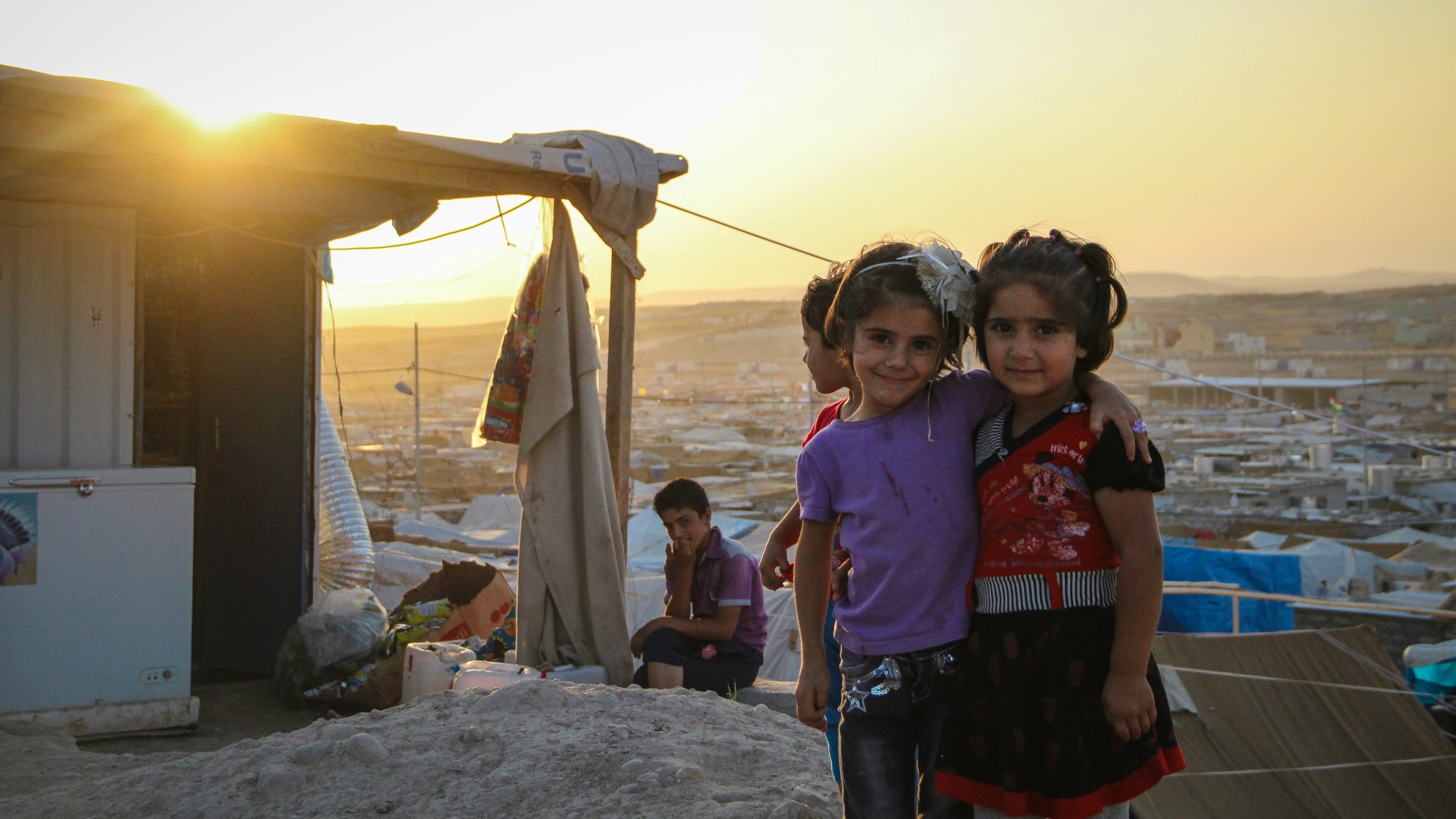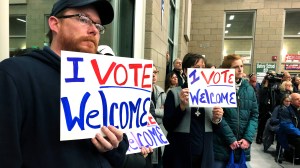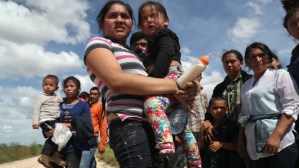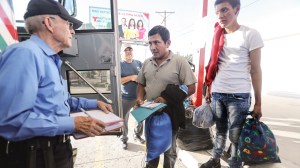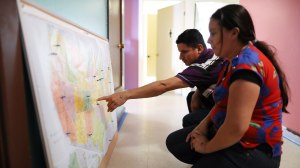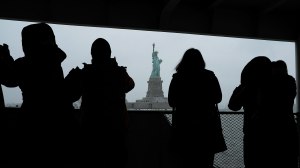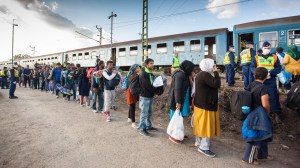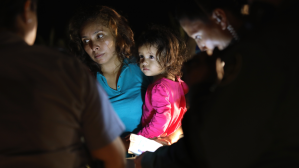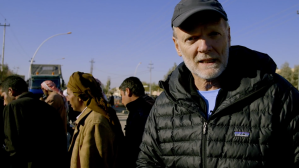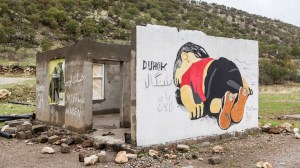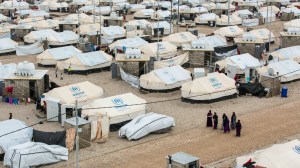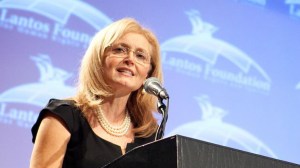In this series
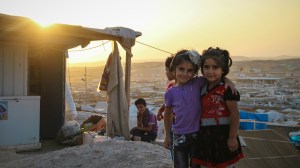
Last month, World Relief nearly doubled the number of refugees it resettles in the United States in a typical month. In the past 12 months, the evangelical agency handled a caseload of 9,759 refugees—its largest total since 1999.
“The task set before us last month was nothing short of monumental,” stated president Scott Arbeiter. “But the work our dedicated staff and volunteers have accomplished has been equally impressive.”
The milestone comes at the same time as major setbacks to the effort to ban Syrian refugee resettlement in Indiana and Texas.
Earlier this month, a federal appeals court found the Syrian refugee ban by Indiana governor and GOP vice presidential nominee Mike Pence was based on a “nightmare scenario” of Syrian terrorists posing as refugees to gain US entry. “No evidence of this belief has been presented,” wrote judge Richard Posner of the Seventh Circuit Court of Appeals.
Four days later, Texas’s attorney general dropped the state’s appeal of a federal court decision, preventing Texas from banning resettlement of refugees from Syria inside state borders.
Through its 26 offices and its local church networks, World Relief resettled 1,400 refugees in September. The agency supports federal plans to increase the rate of resettlement of refugees by nearly 30 percent next year.
“[We are] prepared to continue meeting the increased need into the next year by providing resettlement assistance to some of the world’s most vulnerable people,” Arbeiter stated.
The Obama administration’s 2017 plan calls for the resettlement of 110,000 refugees—including 13,000 Syrians—across all 50 states. The 1980 Refugee Act authorizes the president to set this annual goal.
World Relief is one of nine agencies approved for refugee resettlement. It partnered with 1,180 congregations this year to assist refugees.
“It’s a counter-cultural moment for the church. How could we sit out the greatest refugee crisis in history and still say that we love our neighbor?” Ed Stetzer told CT. In January, Stetzer helped to convene the GC2 summit, a new pro-refugee collaboration among evangelicals.
Stetzer said Christians should participate in the debates over vetting refugees and other issues. “And while debate goes on, the church abides by another policy—the one Jesus gave when he said, ‘Do to others as you would want them to do to you.’”
Across the board, religious groups are pressing hard for higher resettlement goals. Yet state and local opposition remains strong nearly one year after the Paris terrorism attacks that killed 130 people.
“We are hoping that Congress and states will embrace this, but we are seeing the opposite,” World Relief vice president for advocacy and policy Jenny Yang told CT.
Many who resist refugee resettlement are worried about terrorists posing as refugees. But recent research by the libertarian Cato Institute found that “the chance of an American being murdered in a terrorist attack caused by a refugee is 1 in 3.64 billion per year.”
Resettlement critics also base their opposition on the health risk of resettled refugees who might carry tuberculosis and HIV, and on the burden placed on local government as refugees exhaust federal benefits.
“Texas recently decided to pull out of the refugee resettlement programs, as did Kansas and Idaho,” Yang said. “The House of Representatives also recently had language in one of their bills to limit funding to only 70,000 refugees.”
This fall, Church World Service (CWS) called for much more ambitious goals for resettlement. “Anything short of a steadfast US commitment of admitting 200,000 refugees over the next fiscal year would betray the White House’s own call to redouble global resettlement efforts,” said CWS, which represents 37 Christian groups, in a statement.
According to the Pew Research Center, just under 85,000 refugees were resettled in the US by September 30, the end of the 2016 federal fiscal year.
More Muslim refugees (38,901) were admitted in 2016 than in any other year since the government started to release religious affiliations in 2002. By comparison, admission of Christians dipped to 37,521 in 2016, slightly below the 2015 total.
“During the past 15 years, the US has admitted 399,677 Christian refugees and 279,339 Muslim refugees, meaning that 46 percent of all refugees who have entered the US during this time have been Christian while 32 percent have been Muslim,” Pew stated.
CT has reported on why Syrian refugees are more Muslim than Christian, whether the Paris terrorist attack affected American attitudes toward asylum seekers, and how many pastors report that their congregation is fearful of refugees coming to the United States.
CT also visited eight refugee camps in Iraq and Greece to learn why evangelicals on the front lines of the refugee crisis still have hope.

